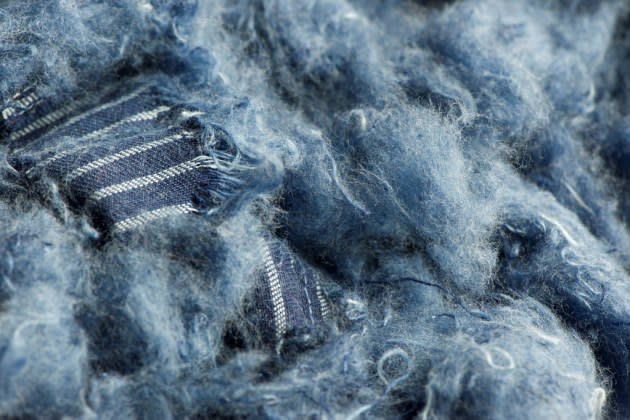
Click in this article to browse the comprehensive write-up.
Lenzing Team is scaling the manufacturing of pre-consumer recycled lyocell with the support of 3 denim mills. The corporation uncovered this week that it has entered the initial phase of the Fiber Recycling Initiative by Tencel.
Extended-expression companions Artistic Milliners from Pakistan, Canatiba from Brazil and Textil Santanderina from Spain have kicked off the generation of denim materials derived from mechanically recycled Tencel branded lyocell fibers. Artistic Milliners previewed the fabrics final October at Kingpins Amsterdam.
The round job builds on Tencel’s posture in the denim marketplace as a sustainable fiber for denim. Virgin Tencel lyocell is created with a closed loop output procedure that transforms sustainably sourced wood pulp into cellulosic fibers with superior useful resource efficiency and minimal carbon footprint. Mechanically recycled Tencel fibers provides to the sustainability features of the denim fabric, as it does not involve utilization of water or chemical substances.
“As we regularly request ways to improve circularity throughout a variety of parts of the textile industry, our like-minded, many years-extensive worth chain partners have innovatively discovered the mechanical recycling of Tencel lyocell fibers in denim creation,” reported Tuncay Kılıçkan, Lenzing’s head of world wide company progress, denim.
The 3 mills are producing the recycled fiber from pre-shopper squander which include yarn creation waste and cloth scraps collected at their creation services. The mills are converting the squander supplies into raw supplies for utilizing in their creation procedures.
Kılıçkan reported the share of recycled fibers employed in the cloth is up to the mills and depends on the spinning methods. “Based on our knowledge, at the moment, up to 50 p.c of mechanically-recycled Tencel lyocell fibers could be used in the generation of new denim material,” he mentioned.
As opposed to mechanically recycled cotton, which results in a shorter fiber duration than virgin cotton, mechanically recycled Tencel fibers preserve size, resistance and all the actual physical qualities of virgin Tencel. Materials created with mechanically recycled Tencel lyocell aspect a “close-to-cotton” aesthetic while retaining the core functions of Tencel like breathability, smooth drape and ease and comfort.
“Considering the significant tenacity of Tencel lyocell fibers, there is an edge to boost recycled content material though manufacturing greater high-quality materials,” explained Baber Sultan, Artistic Milliners director of analysis, products and pattern. “The new material has so substantially likely throughout global markets, specifically with the nostalgia about Y2K and other vintage seems to be. The common salt and pepper outcome really blooms with mechanically recycled Tencel lyocell fibers, along with that neppy denim aesthetics.”
The recycled fibers can also be confirmed and traced back again to their sources, making certain manufacturers greater accountability and transparency in their source chain.
Need from brand names and consumers for much more circular items led Lenzing to start the initiative. Canatiba said mechanically recycled Tencel has “a robust possible to scale amid large brand names and division stores” in Brazil. José Antonio Mazorra, Textil Santanderina’s corporate social duty supervisor, goes 1 move even more and reported the textile business is dependent on sustainability and circularity to “guarantee the survival of denim.”
“The consciousness of lessening environmental impression inside of our sector is escalating, specifically with the field tendencies of round economic system and sustainable creation practices,” he mentioned. “I be expecting that innovation and technological improvements all around circularity, together with phases of collection, selection and recycling, will final result in a larger will need for mechanically recycled cellulosic fibers.”

